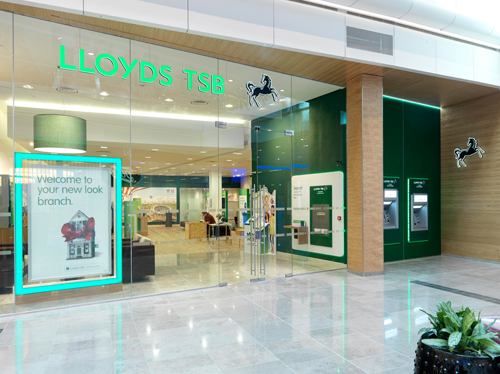The personal details of thousands of customers that hold a Premier Account with Lloyds Bank have been stolen.
The serious data breach came after a data storage device was stolen from a “data room” belonging to Royal Sun Alliance (RSA) insurance.
Data Theft
The data storage device apparently contained the personal details of people who hold a Premier Account with Lloyds, which comes with emergency home insurance (provided by RSA)
If the Lloyds customer opened their accounts between 2006 and 2012, AND made a claim on that insurance policy, then it is highly likely their data has been stolen.
 “Unfortunately a data storage device has been reported as stolen from one of our data centres,” said RSA in a statement. “We have advised our regulators and are in the process of contacting potentially impacted customers to apologise.”
“Unfortunately a data storage device has been reported as stolen from one of our data centres,” said RSA in a statement. “We have advised our regulators and are in the process of contacting potentially impacted customers to apologise.”
“We are working with the police on a full investigation and although there is no evidence to suggest that this data has been misused in any way, we are offering identity protection with Cifas for two years to provide reassurance to these customers,” it said. “We recognise this should never have happened and apologise to all customers who have been impacted.”
Concerned customers are advised to call RSA on 0800 316 8090.
Neither Lloyds or RSA responded to TechweekEurope at the time of writing.
Bank Targets
Banks are designed to keep things safe, but unfortunately they are frequently targeted by hackers and thieves, who are sometimes successful.
Last year for example, five Bulgarians were arrested after the theft of reams of UK bank data. The crooks allegedly gathered banking information online, which was then used to create fake credit and debit cards. Some of the arrested men were caught red handed trying to take money from ATMs using stolen cards.
South Korea meanwhile suffered a major leak of personal and bank data, that affected almost a third of the nation’s 50 million inhabitants. It happened after a man working for the credit ratings firm Korea Credit Bureau was arrested on suspicion of leaking information of around 15 million credit card holders to willing buyers.
And earlier this year, a Swiss bank confirmed that hackers publicly divulged confidential customer information after the bank declined to pay a ransom. The attackers had hacked state-owned Banque Cantonale de Geneve (BCGE) and downloaded more than 30,000 email messages between the bank and its customers.
And hackers have even breached the public website of the European Central Bank (ECB) and made off with names, email addresses and other personal details of people who had registered for events there.
How much do you know about information security? Try our quiz and find out!




